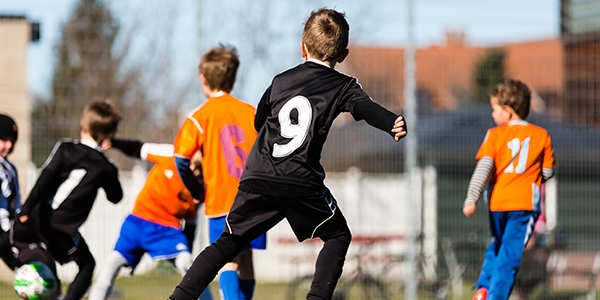
How to Identify Your Sports Kids Game Strengths
Two outs, bottom of the ninth inning, bases loaded and your kid is at the plate. As sports parents, we’ve all been there, nervously clenching our hands together, envisioning little Joey poking a base hit just over the first baseman’s outstretched arms, and his team surrounding him as he flashes a big grin.
As we begin counting how many victory ice cream cones we’ll need to buy, we suddenly hear the umpire yell “Strike 3!” and our little superstar is walking back to the dug-out,, head down, kicking the dirt in front of him.
If only life, and the opposing pitcher, didn’t throw us that wicked curveball sometimes. Let’s face it. The world of competitive sports is, well, competitive at times. One of the biggest mistake sports parents can make is focusing on the physical aspects of the game, when they should be helping their child become mentally tough.
Ty Cobb, one of baseball’s greatest players, hit the nail on the head when he said, “The most important part of a player’s body is above his shoulders.” Keeping that in mind, below are five steps to identifying and nurturing your child’s mental-game strengths:
- Identify: Understand what your kids’ strengths and weaknesses are. The best way to accomplish this is by simply watching your athletes, not only when they’re playing sports, but when they are studying for that big spelling test. What are their study habits? How do they react to pressure-packed moments? Keep a list of positives and negatives, and identify ways to overcome the negatives. Keep an eye out for these and other mental-game traits: performing well under pressure; focusing on what needs to be accomplished right now (as opposed to worrying about the score); focusing on the job at hand, even when friends show up to watch; playing well during games as well as practice; and being able to move on after making a mistake (as opposed to dwelling on the mistake).
- Encourage: There is no such thing as too much praise. Let your children know you’re their biggest fan, regardless of the game’s outcome. Offer encouraging words not only about mental-game performance. “You were so focused during the game today,” or “I’m glad you didn’t let that mistake in the first inning bother you,” are good ways to show your child mental toughness is the first step to athletic accomplishment.
- Listen and learn: Too often, parents become overly analytical of their child’s athletic performances. Telling your child “If you would have swung at the second pitch,” or “if you would have shot the ball when you were open in the second quarter,” serve no valuable purpose. Come off the speaking box long enough to listen to your kids and learn what they consider their strengths and weaknesses.
- Keep a journal of “feel good” moments: Even though Joey might have struck out with the game on the line, remind him of what he did right, mental-game wise. This is easy to do if you keep a journal during the game. Be specific, and highlight a good mental game. “I was so proud of you when you weren’t intimidated by your opponent, even though he was a foot taller than you.” Or “You didn’t even hesitate after that point guard stripped the ball from you. You just hung in there.”
- Begin sports traditions: Whether it’s taking your child to a professional game, or simply spending Sunday afternoon at the park playing pitch and catch, begin regular, routine sports traditions with your kid. During these outings, be a role model and show what it means to have a strong mental game. Show that you can focus on the task at hand. Demonstrate that it’s possible to get stung by a bee but hang in there and keep playing. Be clear that it’s a bad idea to compare yourself to others.
Striking out doesn’t sting as bad when your kids know tomorrow is your father/son trip to the ballpark–and they’re going to learn some mental game lessons that will benefit them in sports–and life.
Related Sports Psychology Articles
- Self-Criticism In Youth Athletes
- Comparison’s Impact on Athletes Confidence
- Improve Sports Kids’ Mental Toughness
*Subscribe to The Ultimate Sports Parent Podcast
*Subscribe to Peak Performance Sports on Youtube
Download a free sports psychology report to improve your mental game!
Sports Psychology Coaching for Young Athletes

One-on-one mental performance coaching is the fastest and most effective method to improve your athletes’ mental game, boost their performance, and make lasting changes. And as a bonus, parents learn what to say to help young athletes feel confident and thrive in sports. Please call us at 888-742-7225 with your questions.
